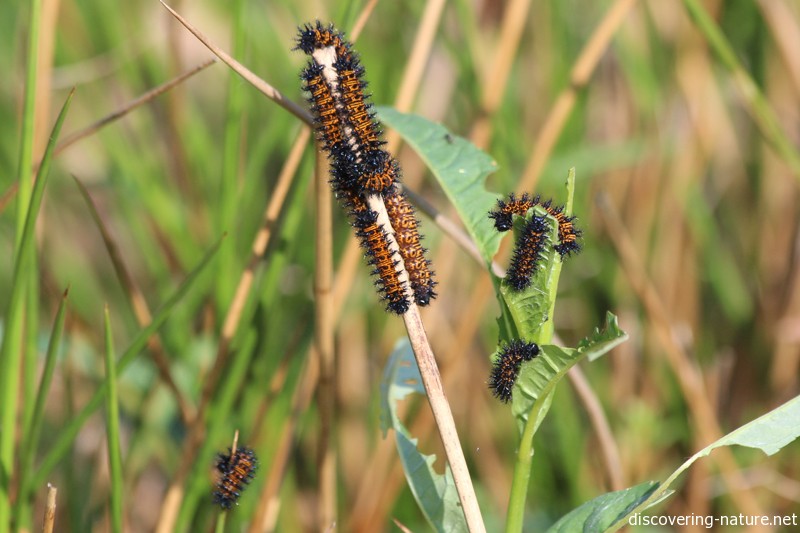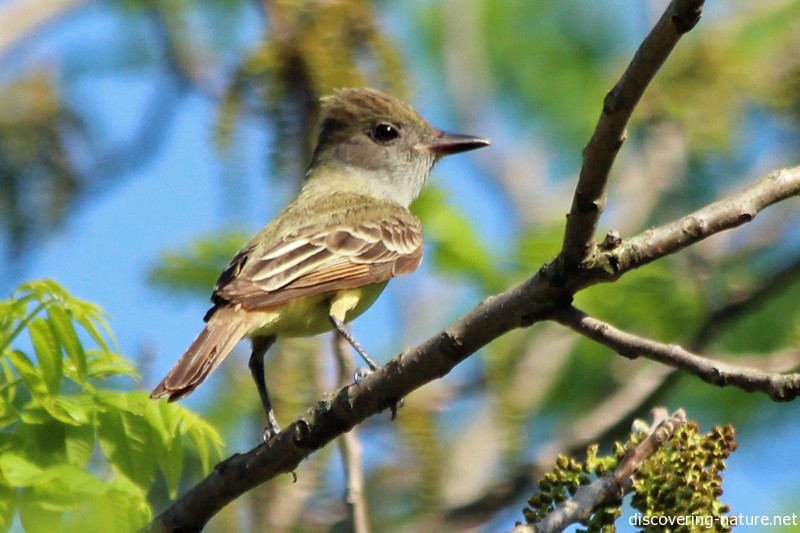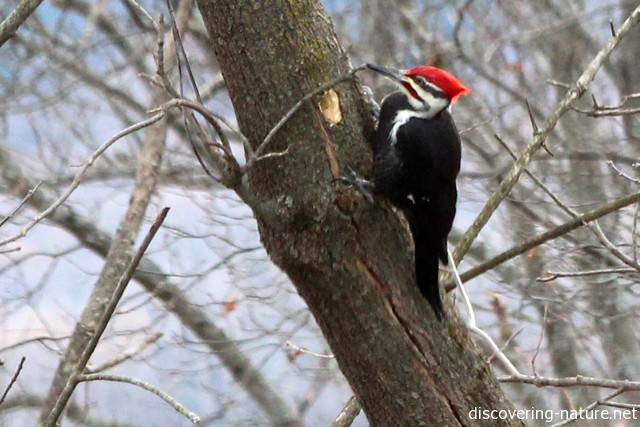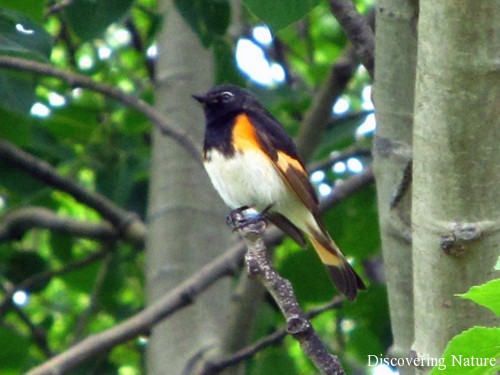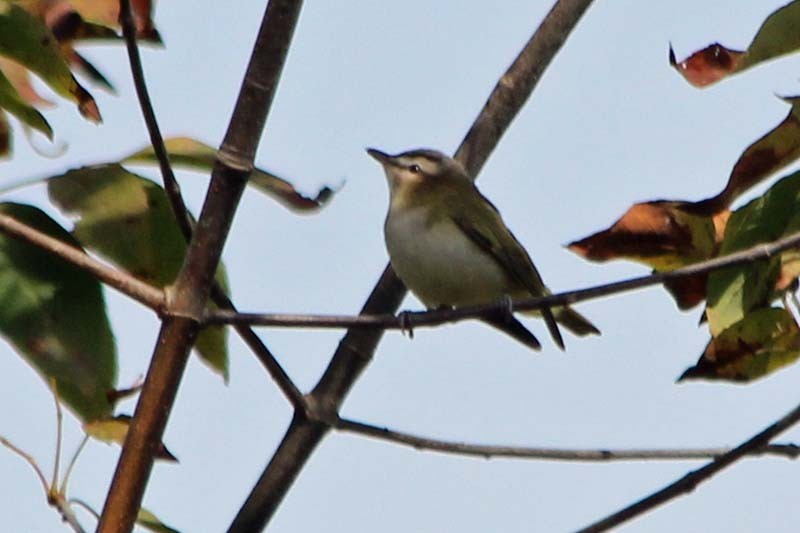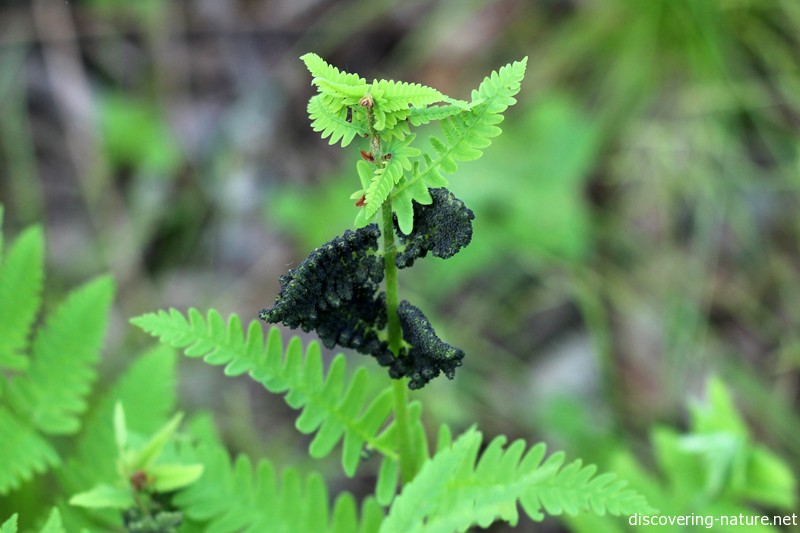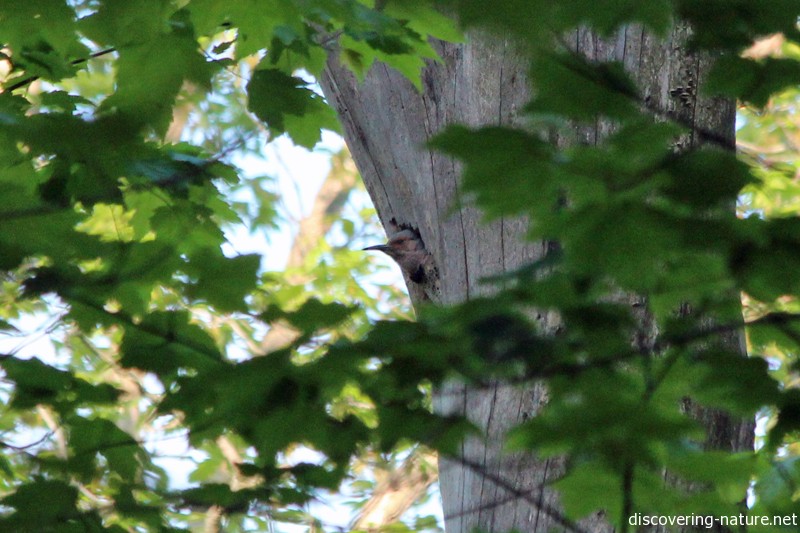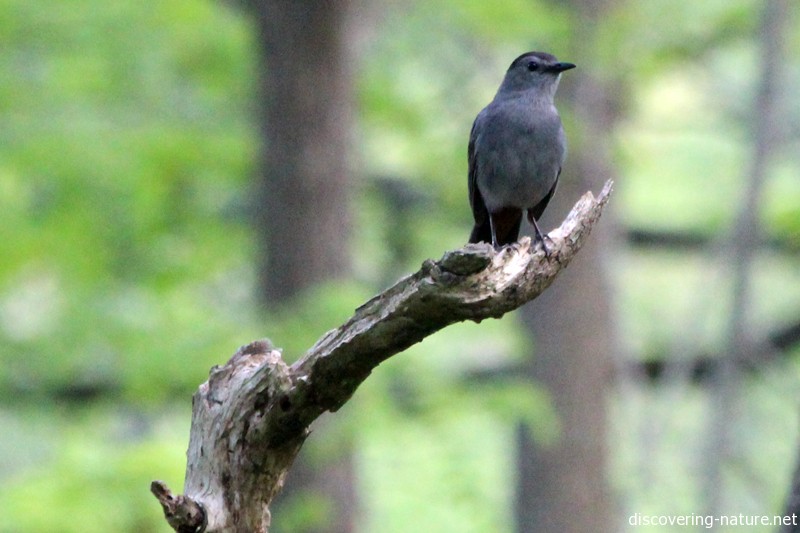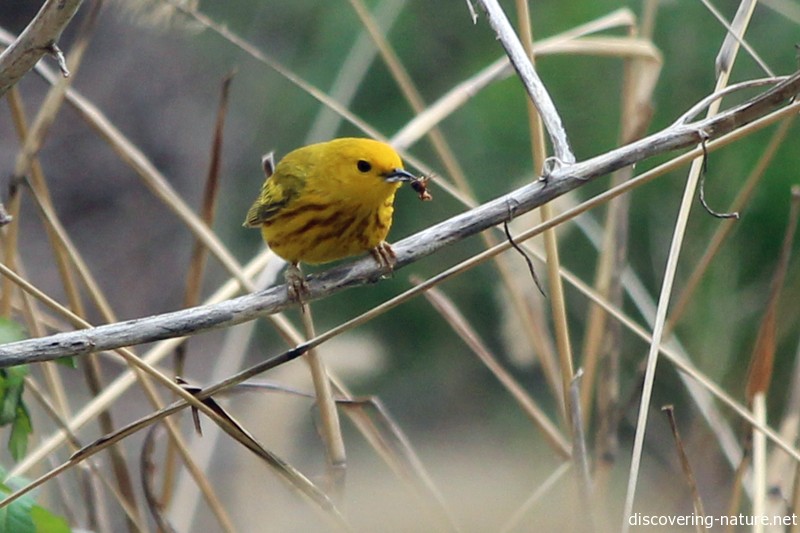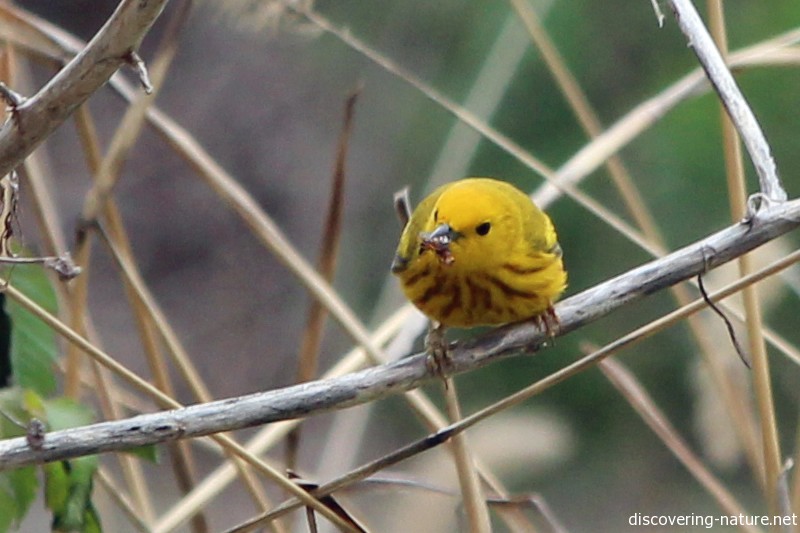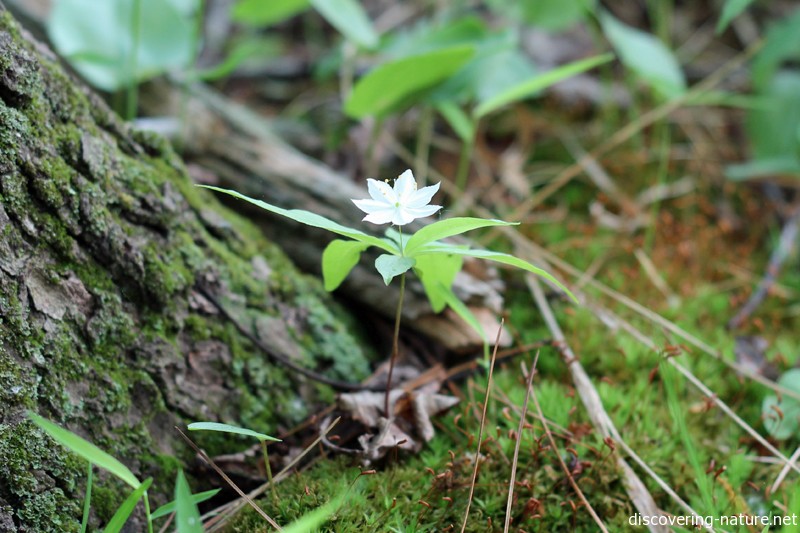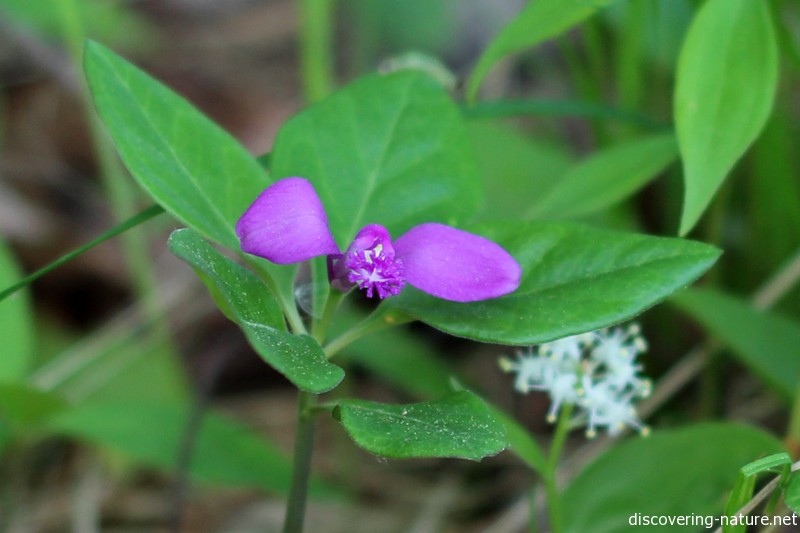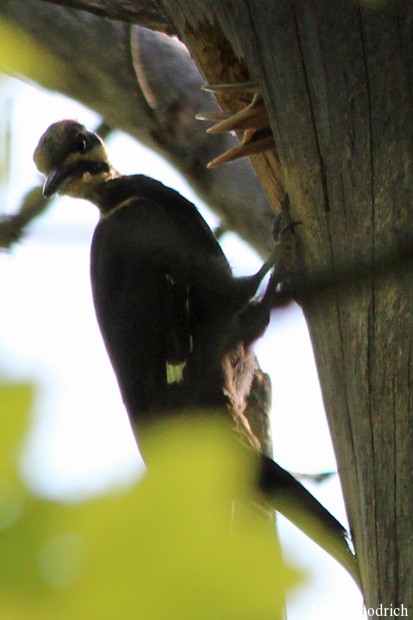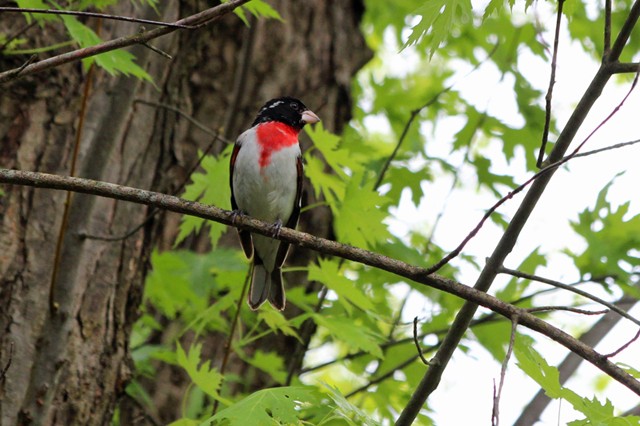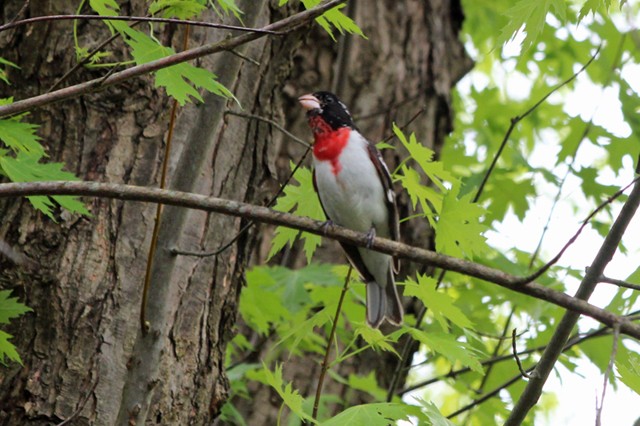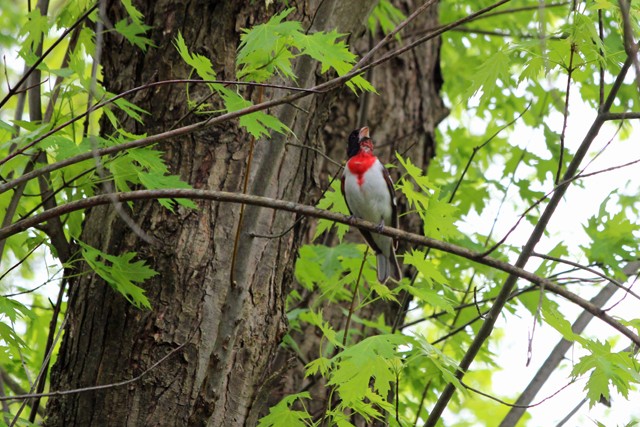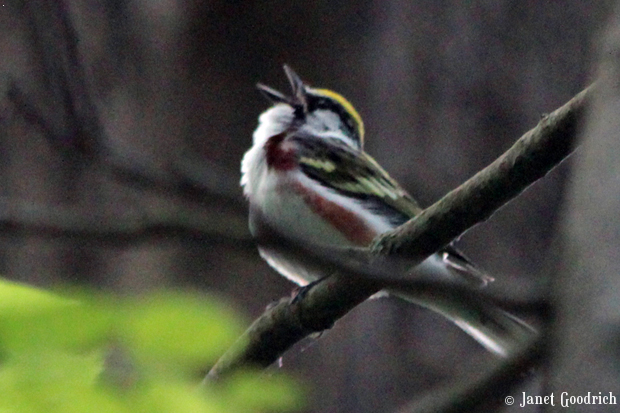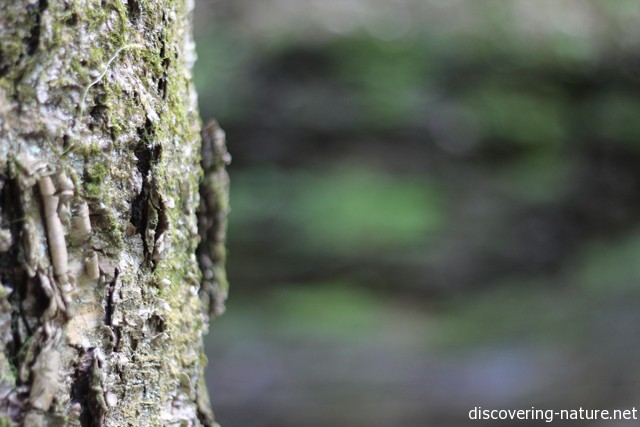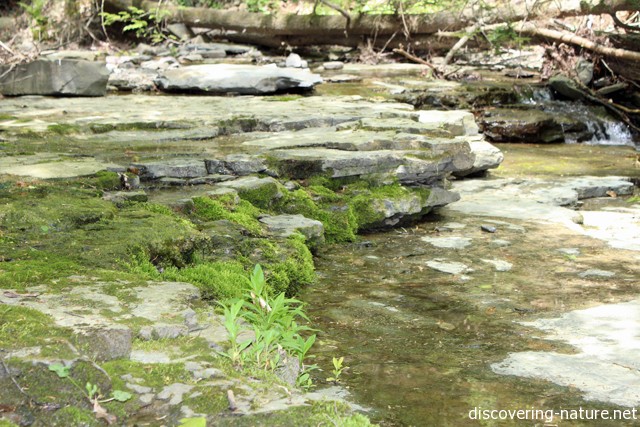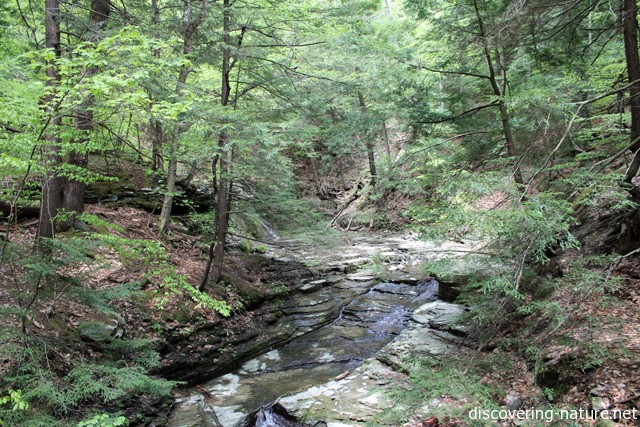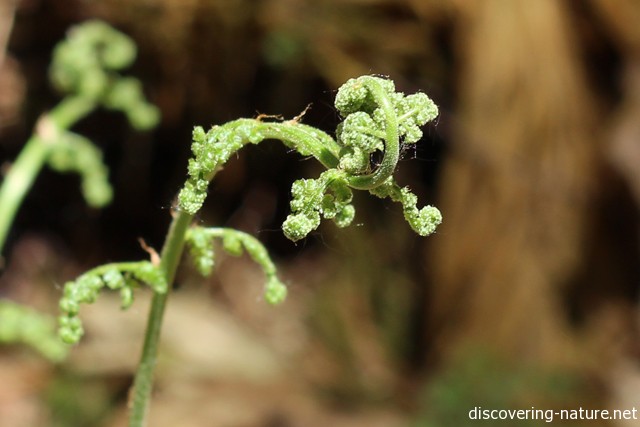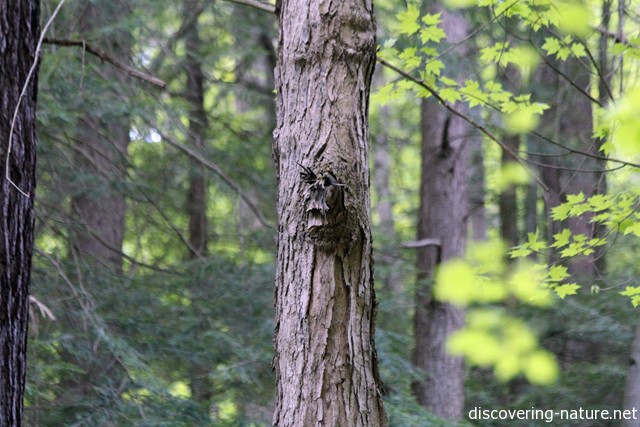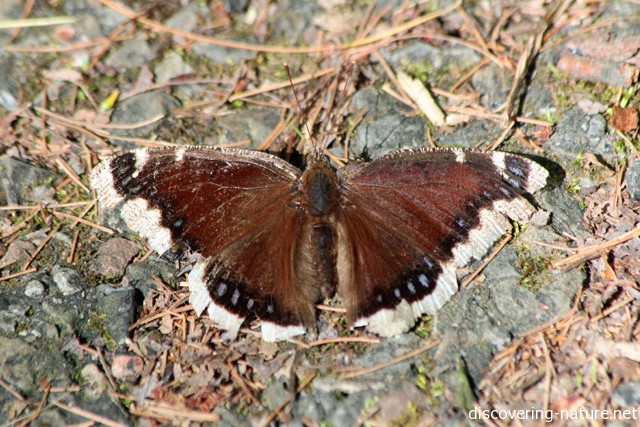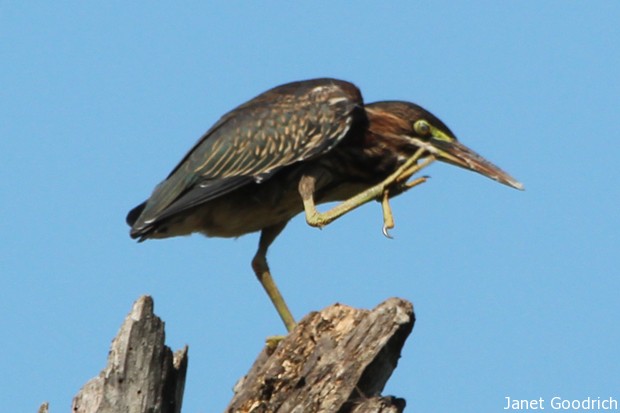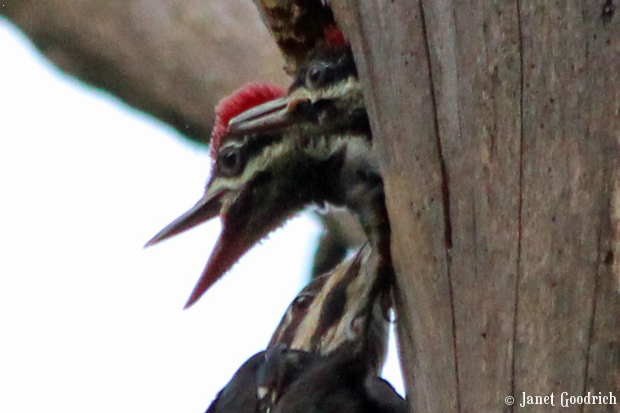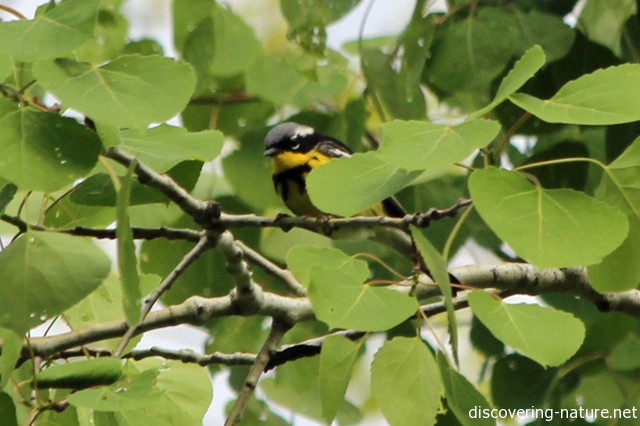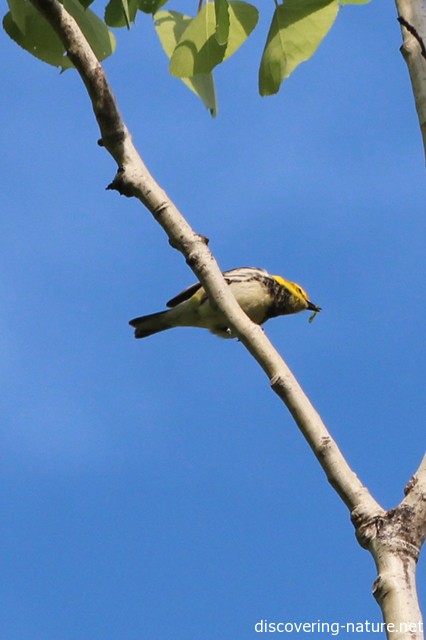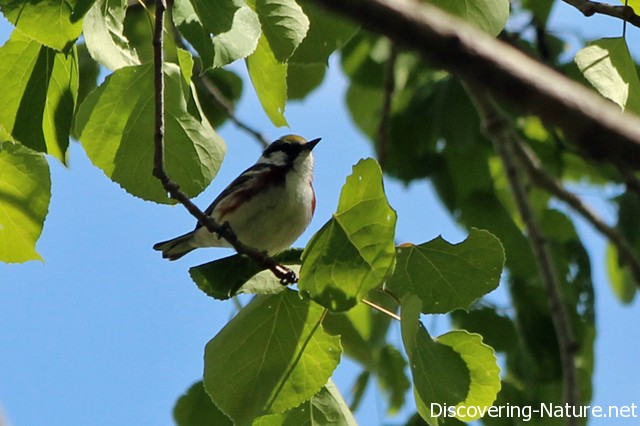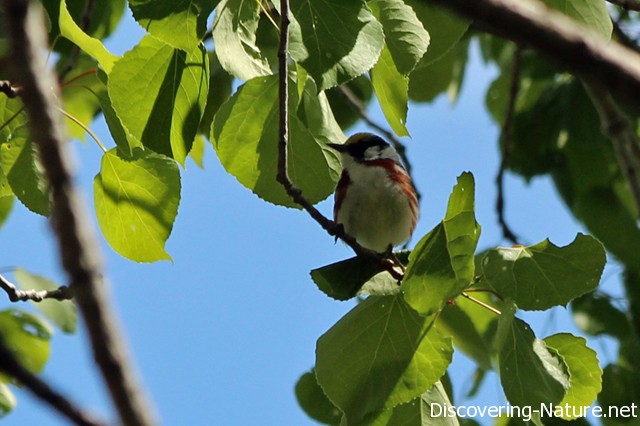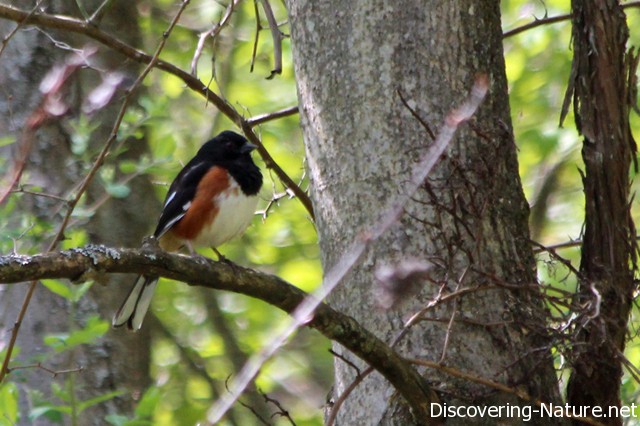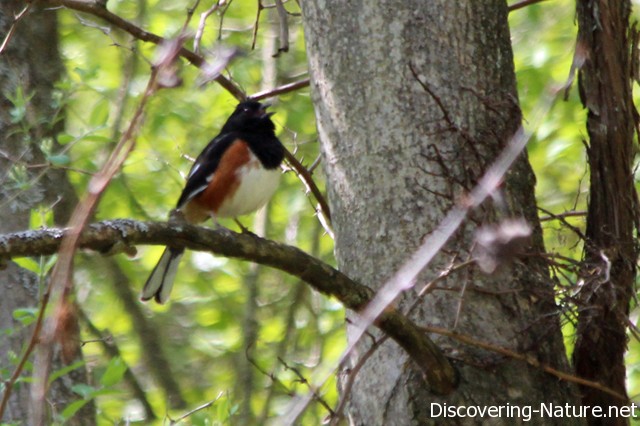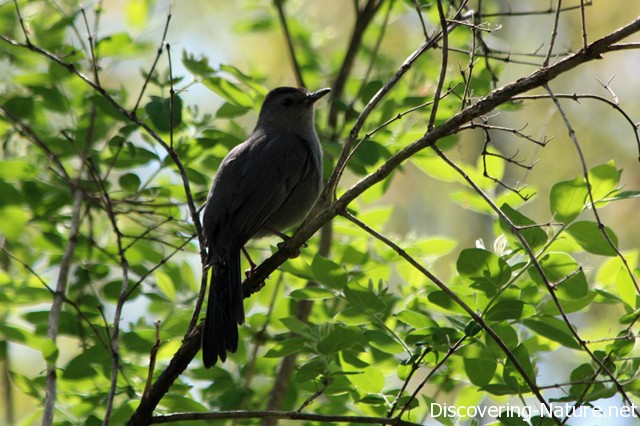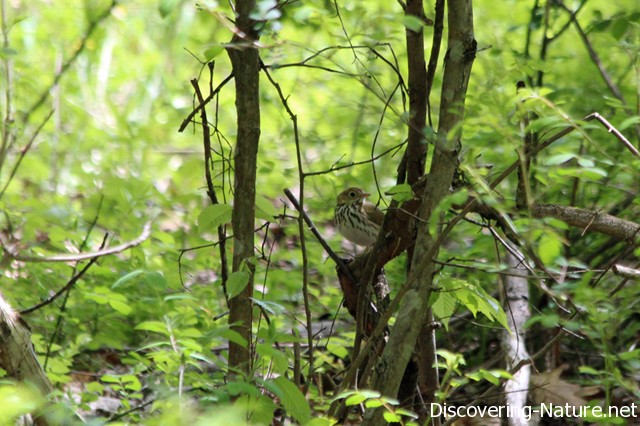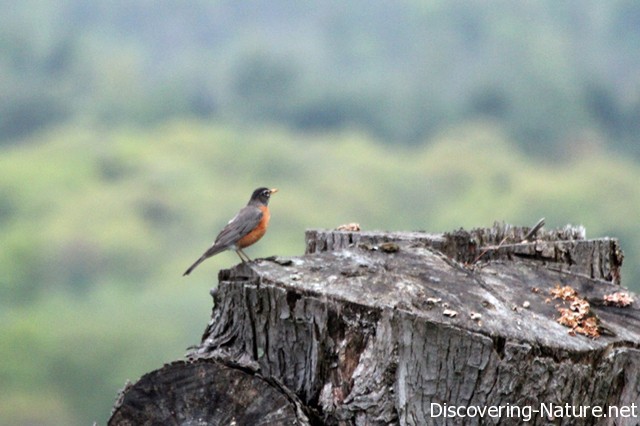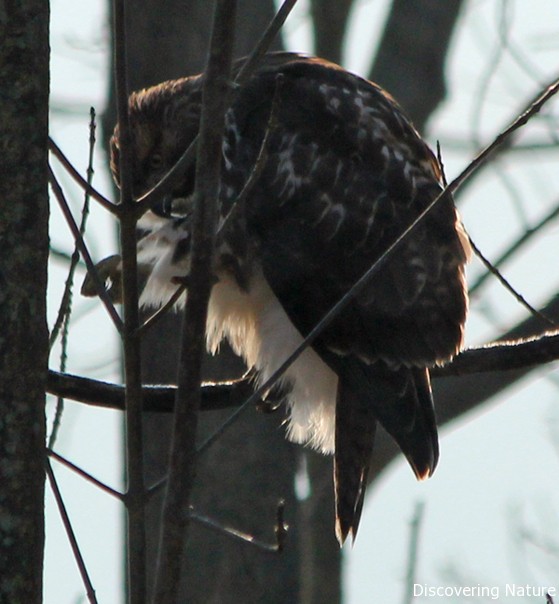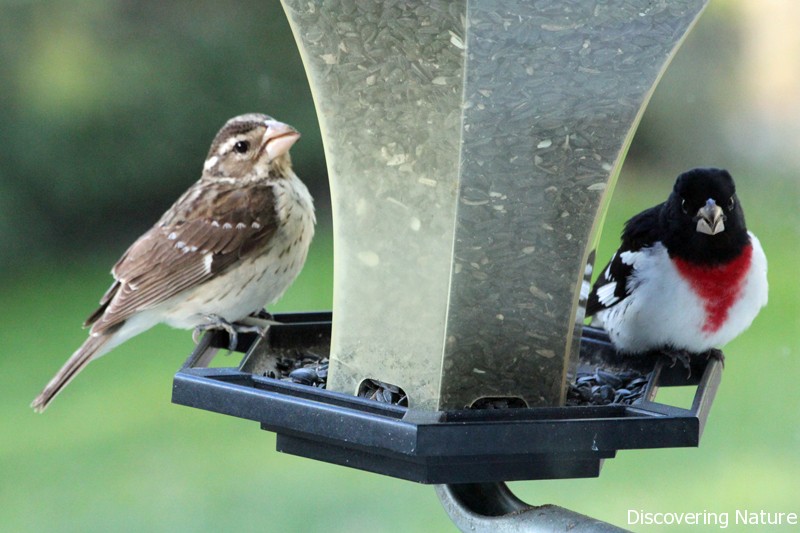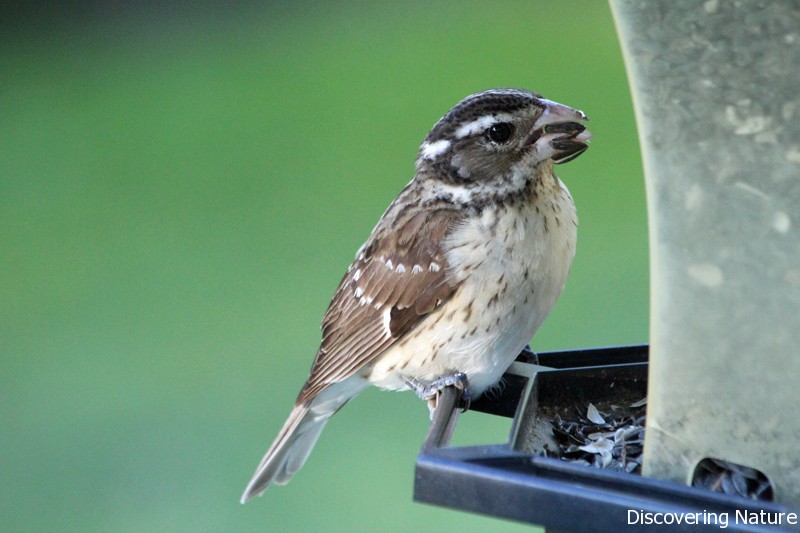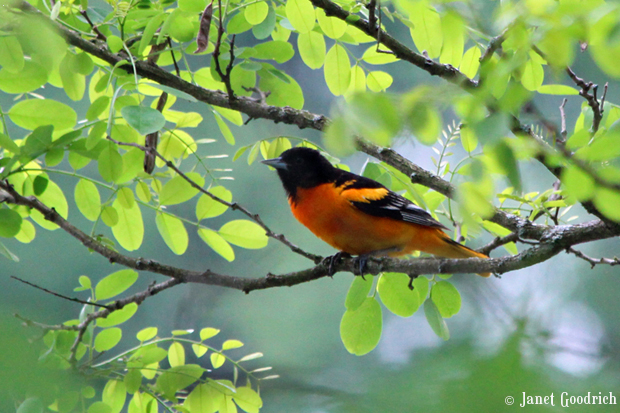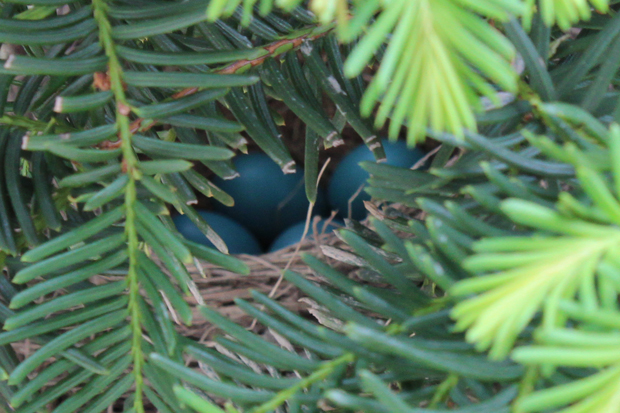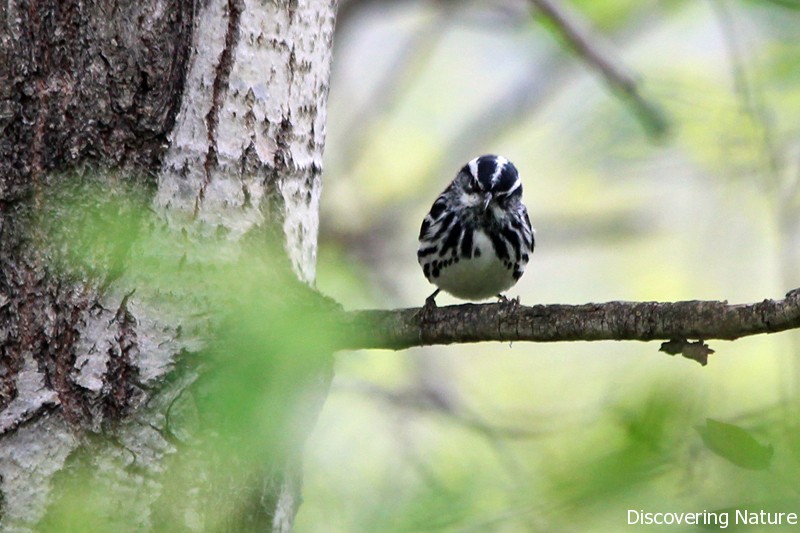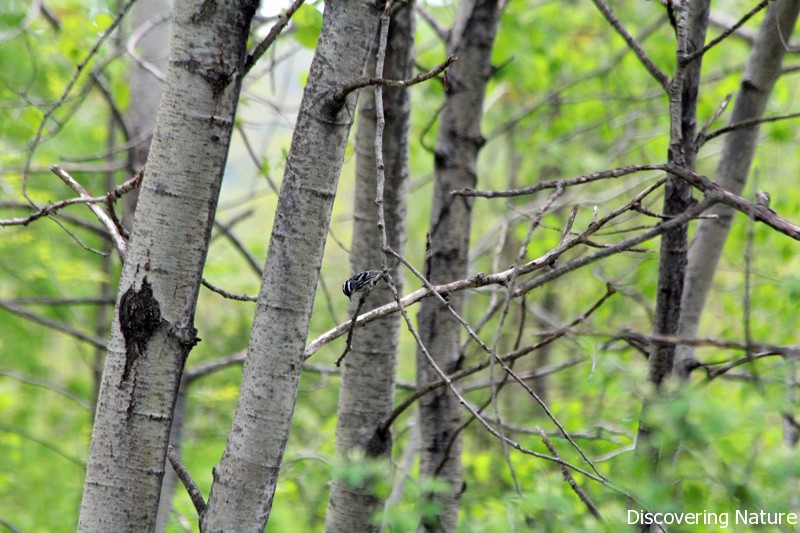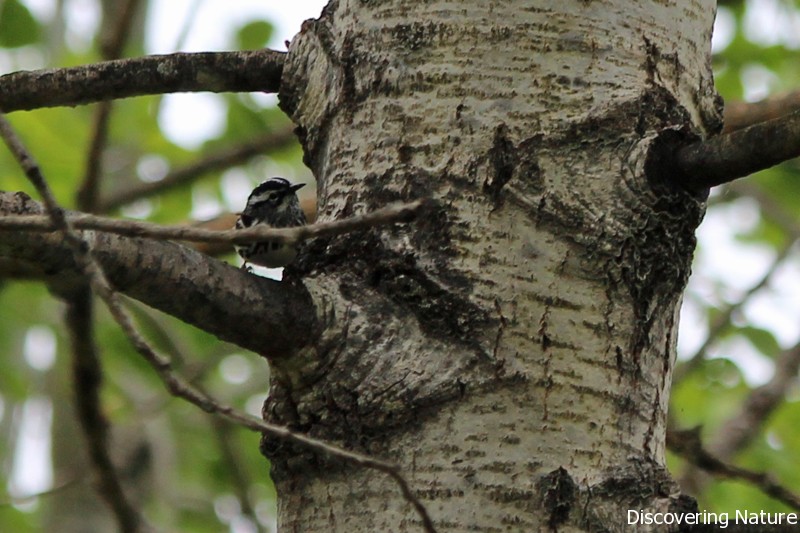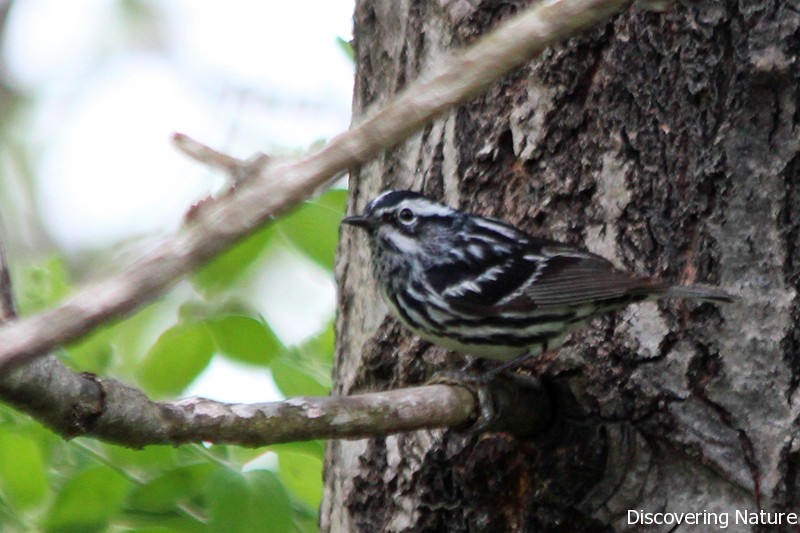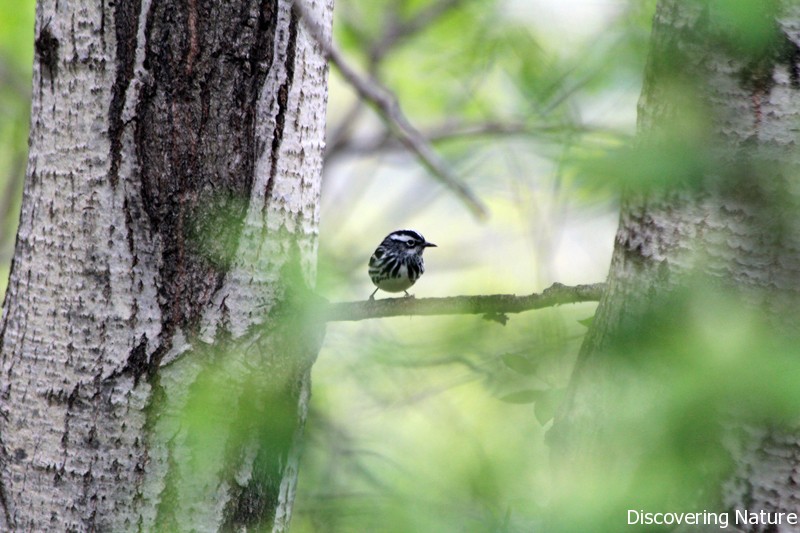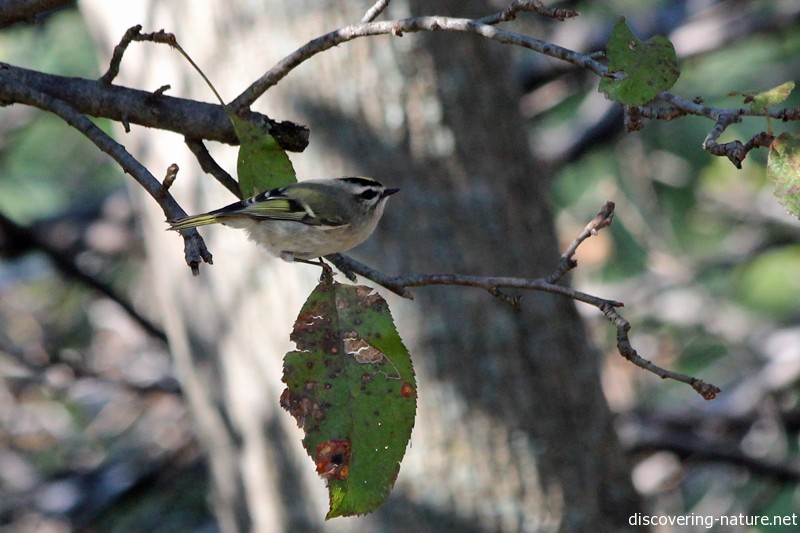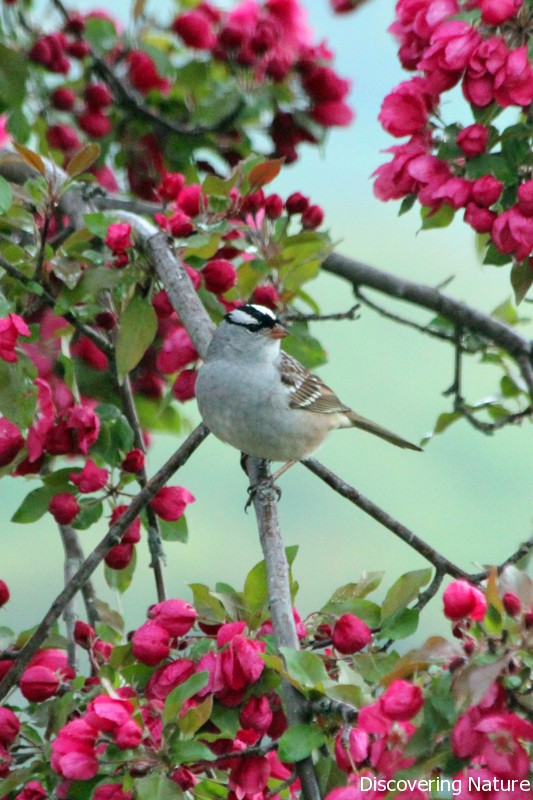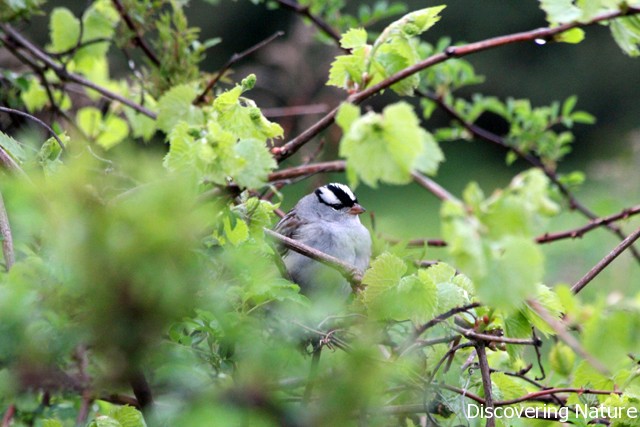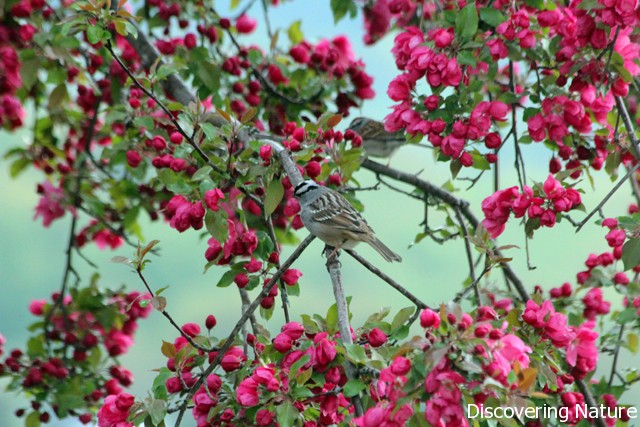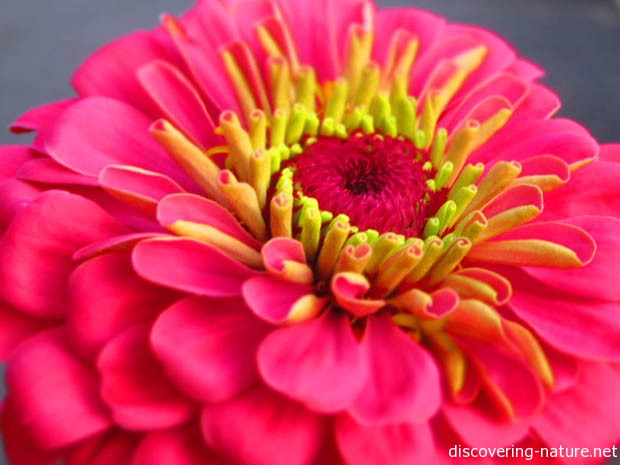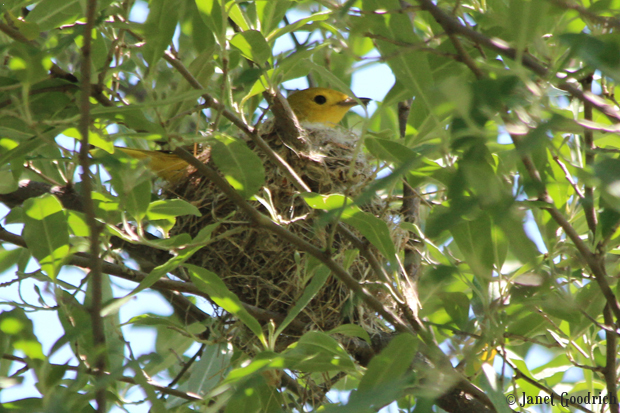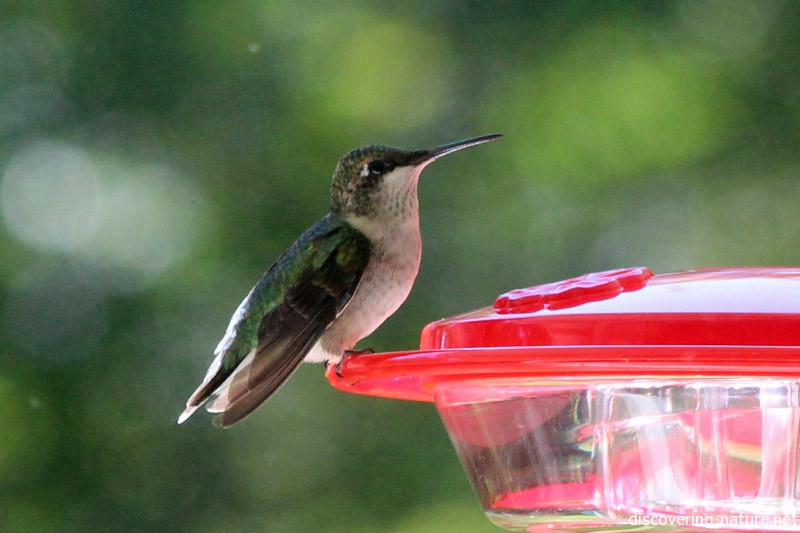Birds
-
Pond Walk
My dad took the girls and me for a walk around a different pond yesterday. These are some of the sights.
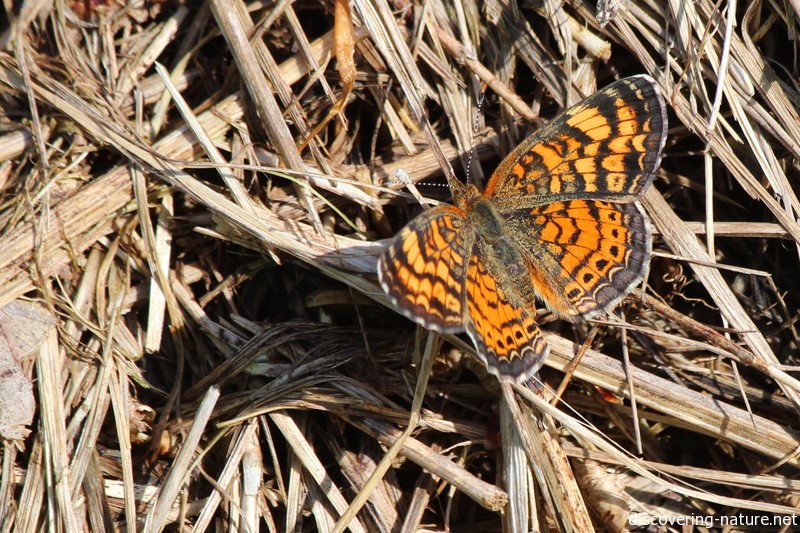
Pearl crescent butterfly Supposedly the underside of the hind wing has a crescent, though I confess I have a hard time seeing it.
There were LOTS of polliwogs — enough that we ended up taking some home in a goldfish bowl to observe.

The Wog Whisperer — my younger daughter 
This photo shows an adult frog chilling on the bottom while the younger generation swarms over it. 
Feeling watched? The fields around the pond were filled with red-winged blackbirds and bobolinks. The bobolinks sang a two-note song, then a long string of gibberish that sounded exactly like R2-D2.
I haven’t tried to identify these caterpillars yet.
Near the car, Older Daughter spotted this tiny moth — and I do mean tiny!
When we got home we identified it as an eight-spotted forester moth.
The day was complete when we pulled into the driveway at home to find some great crested flycatchers. They’ve been around the yard for the last couple of days but they’re hard to get a good look at till they’re on their way out. My youngest spotted this one.
-
Seen here and there…
-
Gray Day Grosbeak
Such a handsome bird.
We have two grosbeaks out back. Maybe it’s a territorial thing, but one of them seems to be singing nonstop. He sang all day Saturday. He sang all afternoon yesterday. He started just before 4:00 this morning, singing again.
Unlike some of the warblers and other birds who throw their heads back and open their beaks wide when they sing, he doesn’t open his beak very far. But his throat puffs out, and he turns his head from side to side.
For the first time, I really get it — the description of a grosbeak’s song as being “like a robin who’s had voice lessons.” It certainly cheers me to hear him in this run of overcast days.
I’m trying to think of suitable words for his song. Occasionally, when the robin sings just before it starts to rain, I can hear in its song,
Betterget
IN-side —
Hurryup!
Hurryup!
I’m not sure what I hear in the grosbeak’s song, though.
-
Mrs. Oriole
She’s more quietly colored than her husband, and a quieter feeder as well. But she was a welcome burst of color on an overcast day.
*Edited to add: Thanks to Peggy for pointing out in the comments that this is in fact a first-year male!
-
Lovely, dark and deep
I took the girls to a preserve yesterday that we haven’t been to in over a year. It contains a gorge and an old growth forest I think of as the Ent Woods. Some of the trees are enormous, and generally speaking it has a dim, brooding air about it.
An old stone bridge spans a stream that runs steeply downhill over a shale bed.
The girls (and the dog) played in the stream while I sat along the edge, watching some chipmunks playing on the steep, mossy far bank, listening to what might have been a grouse ticking somewhere, hearing a warbler I never saw, and admiring the wildflowers growing nearby.
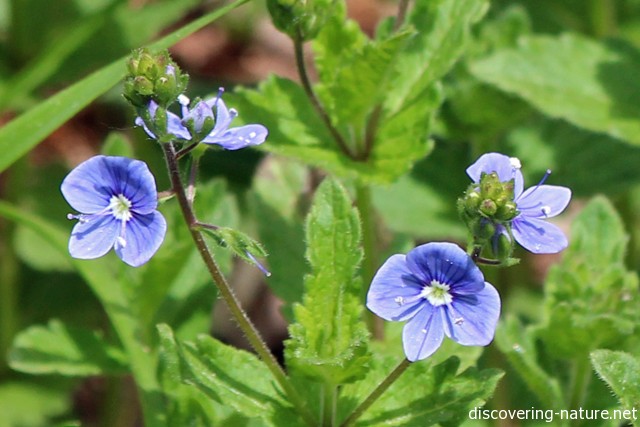
Bird’s eye speedwell 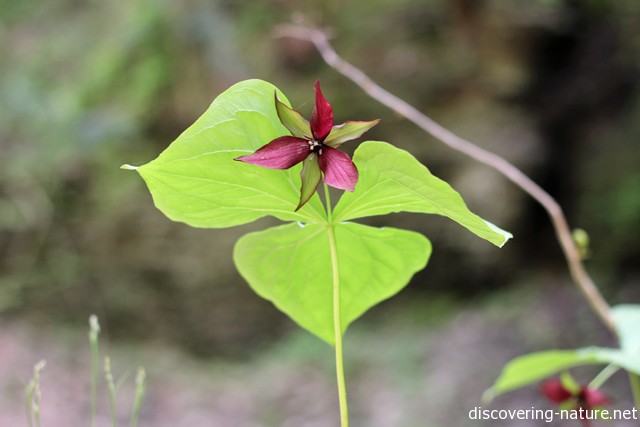
Trillium 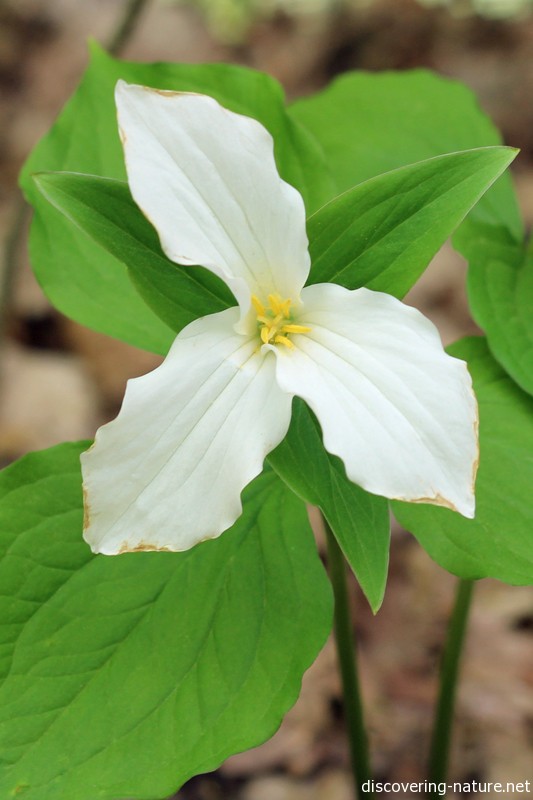
Trillium 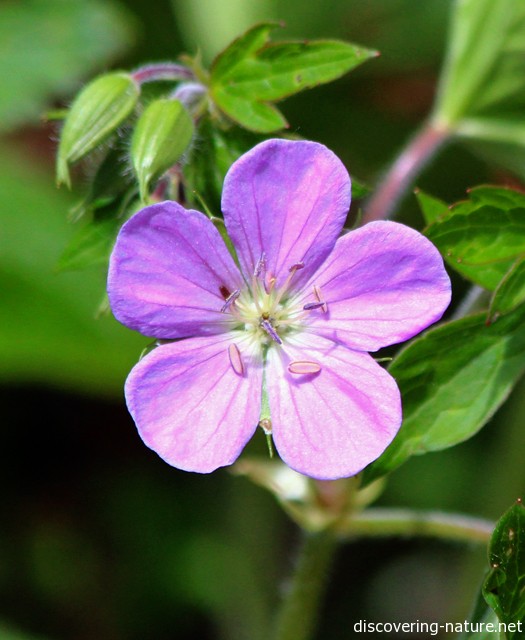
Wild geranium 
Forget-me-not 
Forget-me-not, pink version? As the girls played, I noticed they were being overseen by a tree that looked like it had a face. Maybe it’s an ent…
As I listened to the girls, it occurred to me to wonder whether they would be better off doing something more organized with other children. Are all these hours outside really what they need? It struck me that at some level I’m trying to give them something I had as a child: time to play in the woods. There were woods behind my house growing up, and a creek too. My memories of childhood involve more of the woods than of experiences with other kids. I caught toads, played with my plastic horses out there, and often found clumps of trees or streamside nooks that seemed like natural playhouses. Once, I remember coming home to a spanking; I’d been sitting by the creek not far from the house, daydreaming, while apparently my mother had been calling and calling for me. She was worried; I’d never heard a thing over the happy sounds of the flowing water.
I didn’t know as much about nature as my daughters do. They know the names and sounds of many birds — over 100 already. They know the names of more trees than I did, and what kinds of creatures thrive on the old decaying logs lying along the stream. And unlike me, who in the more innocent era of my childhood spent many hours alone in the woods, they are always attended by a parent — granted, one who tries to become invisible while keeping them in view, but one who’s there just the same, my mace and cell phone safely stored in my camera case, ready to take on any potential sinister creatures who come our way. (None ever have.)
I think that there are great advantages to these experiences. The natural knowledge they’re accumulating. The ability to be alive and interested and imaginative without props. The wealth of shared memories. The love for wild places that will mature into what Aldo Leopold called a land ethic. And then there is what I can only think of as the strengthening, quieting effect of spending time in a natural setting. Generally speaking, it’s never a bad thing to have opportunity not just to live, but to reflect on one’s living. That may be where the sense of self is most formed.
Yet spending time this way is a choice against other ways of spending it, many of them involving more structure and social interaction. Every now and then I stop to wonder whether we’re getting the balance right. I hope so. I don’t want something that’s so good in so many ways to end up isolating.
On our way out, we heard occasional bursts of birdsong. These woods are so dense, and cover so many acres, that the birds aren’t concentrated in flocks that can be easily seen. We didn’t see a blackburnian warbler, as I’d hoped we would. But we saw a black-throated green warbler, a chestnut-sided, a catbird, a few towhees, a Baltimore oriole, several robins, and, finally, a new bird:

Blue-headed vireo It was hawking insects like a phoebe, and singing.
We also saw this battered mourning cloak butterfly sunning itself.
-
Bird lists and new pics
Migrating birds seen since April:
- Yellow warbler
- Chestnut-sided warbler
- Black and white warbler
- Yellow-rumped warbler
- Blue-gray gnatcatcher
- Palm warbler
- Blue-winged warbler
- Ruby-crowned kinglets
- White-crowned sparrows
- Magnolia warbler
- Black-throated green warbler
- American redstart
Heard but not seen:
- Prairie warbler
New returnees:
- Chipping sparrow
- Brown thrasher
- Robin
- Gray catbird
- Red-winged blackbird
- Baltimore oriole
- Eastern towhee
- Rose-breasted grosbeak
- Eastern phoebe
First sightings in 2013:
- Field sparrow (this bird has a beautiful song!)
- Veery
- Oven bird
- Several of the warblers listed above: black and white, blue-gray gnatcatcher, ruby-crowned kinglet, black-throated green
- Red-breasted nuthatch
I’d love to see:
- Blackburnian warbler
- Parula warbler
Here are some photos from an early morning walk today with my 12-year-old. We’d talked about it yesterday, but since she was up late I decided not to wake her up. She got up early anyway and came out to the kitchen raring to go!
She got the best pictures of the black-throated green warbler using the Canon SX 130IS I used before my husband blessed me with a Canon Rebel last Christmas. My auto focus would NOT focus on this fellow!

Photo courtesy of my daughter. Here are my photos of things we saw.
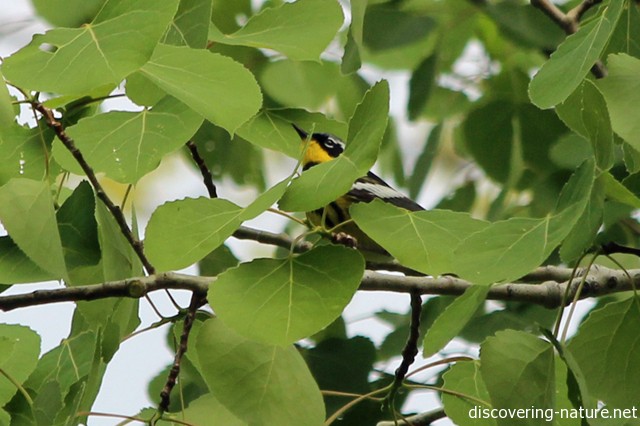
Magnolia warbler 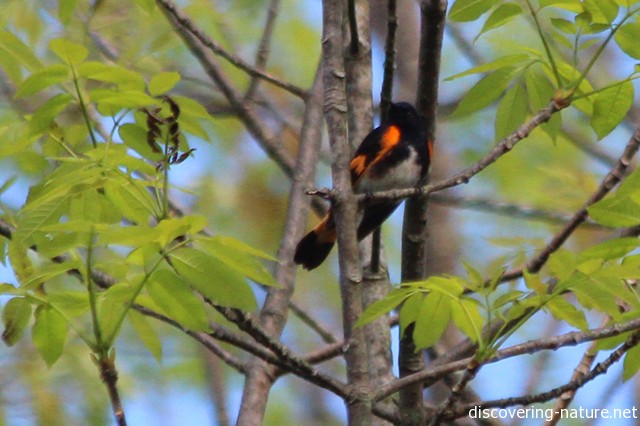
American redstart 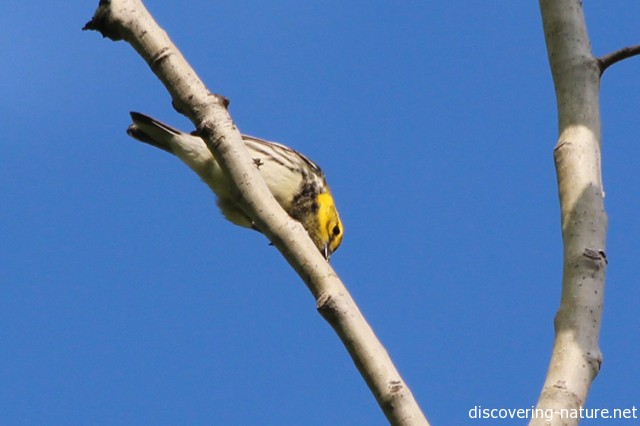
Black-throated green warblers Also seen: oven bird, towhee, yellow warbler, blue wing, chickadee, catbird, brown thrasher, white-tailed deer.
-
Woods wonders
We saw an unprecedented five hawks in the woods yesterday. Two were Cooper’s hawks, flying together — a sobering reminder that all these beautiful spring warblers are in a daily fight for survival.
Along with the yellow warblers and blue wings, chestnut-sided warblers were working the treetops.
I heard but never saw a prairie warbler. (I even resorted to standing in a meadow with my phone, playing the recording of this warbler’s call from the All About Birds site… That was a first!)
There were two Eastern towhees digging in the leaves, rising briefly from time to time to send out their loud “Drink your tea!”
Why isn’t it in better focus? Bummer. I think it’s because I was using the hood in a spot where the sun wasn’t particularly bright. Such a beautiful bird, and I’ve been trying to get a picture for a few weeks now. Oh well.
There is a brown thrasher in the same area. He’s a rich cinnamon color and I just love to hear him, but he doesn’t pose for pictures. Last year I got a good one, though. This year the catbirds are the ones posing for pictures as they chatter in the bushes.
Once you see something once, it has a way of being visible again. So it is with oven birds. Before this year I never saw even one; now I’ve seen several.
I wanted to warn him to hush; there were hawks about. I’ve read that only 50% of oven birds survive. But he vanished into the leaf litter.
The dogwood and red trillium are blooming. The latter isn’t very prevalent, but I saw a few plants. There were lots of dogwood blooms illuminating the woods.
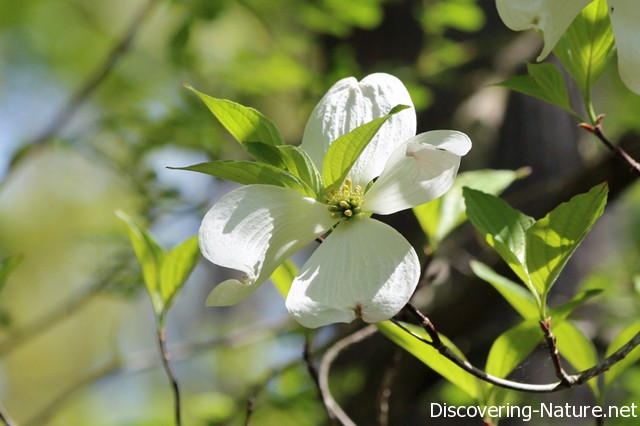
Dogwood 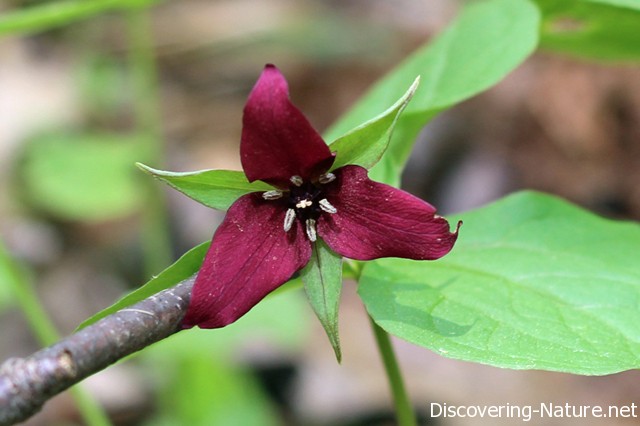
Trillium 3 leaves, 3 sepals, 3 petals. This one’s drooping bloom is propped by a twig so I could snap my photo. Red trillium is also called wake robin — a wonderful, suggestive name that alludes to another favorite herald of spring.
-
Spring feeder visitors
I was beginning to worry that something had happened to our male rose-breasted grosbeak. We’ve never NOT had a grosbeak — at least one — in the 13 years we’ve lived here. But though I’d seen the female, I hadn’t seen the male — till yesterday, when he appeared in his usual station, eating and chirping as usual.
This morning he was back with Mrs. Grosbeak, who looks very different.
The ruby-throated hummingbird is back as well, bringing the yearly challenge of trying to get a good picture. Maybe by the end of the season! For now, this will have to do.
We had a flock of pine siskins yesterday as well. They make a racket of busy sounds as they raid the feeder and resemble more muted, streaky goldfinches in their coloration. When I went out with my camera, they made a tremendous “Zheeee!!” warning call from several treetops.
-
Black and white warblers, take 2
My daughter and I saw this little, streaky bird against streaky bark yesterday. I’d glimpsed one last week, but it didn’t stay around long. This time there were a pair of them working in a birch tree, along with a red-eyed vireo that insisted on staying hidden in leaves most of the time.
I was glad we got a better look this time! They’re so small that at first sight they’re just a movement out of the corner of your eye.
They worked their way up and down the tree harvesting insects.
I remember reading that chickadees have many more receptors in their eyes than we do, so when they see bark, it’s a rich, insect-encrusted feast. These warblers must be the same way. They seemed to find plenty to keep them there, though personally I never saw a bug.
-
White-crowned sparrows
I saw these crisply-marked sparrows last year around this same time. It’s been chilly, so the one in the bush is all puffed up. The others are populating a flowering crab near my in-laws’ bird feeding station. Even on an overcast day, they’re lovely.



